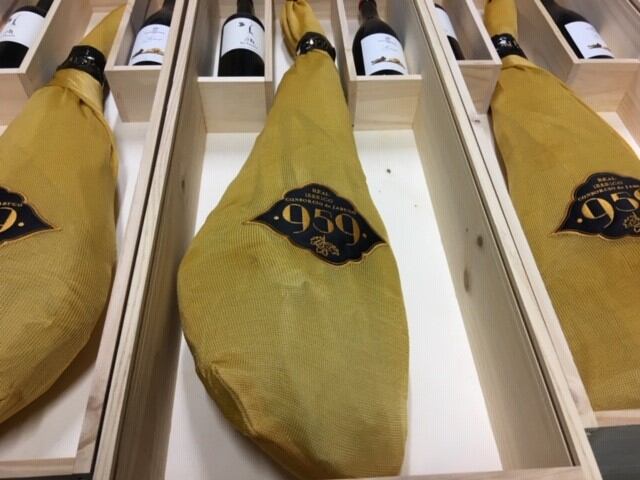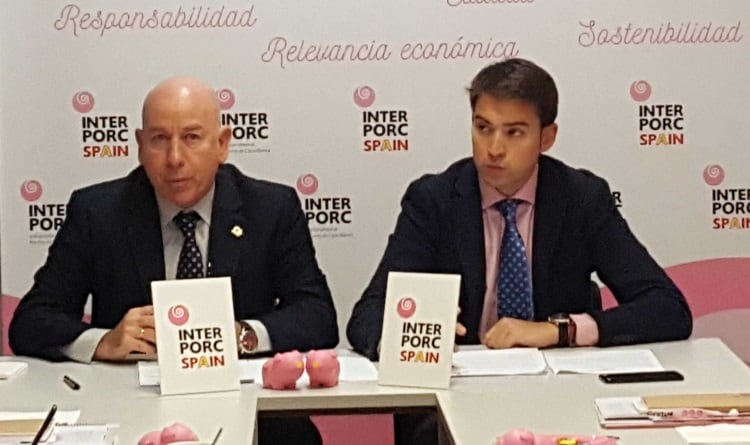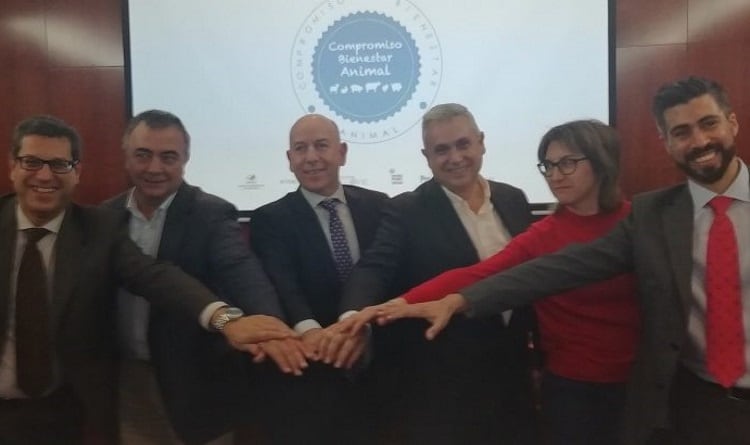Forecasts indicate the halal food and beverage sector will continue to grow without interruption around the world with 1.8 billion Muslims worldwide, a figure set to reach 2.2 billion by 2030, says Alimentaria Exhbitions.
Gourmet products

Of these, more than 60% are currently under 30 years of age.
Speaking at the International Press Conference for Alimentaria, this month (a preview to the tradeshow in Barcelona, April 2020), J. Antonio Valls, MD, Alimentaria Exhibitions said it has created a Trends Space at its show next year to reflect a growing interest in five categories; Fine Foods (gourmet products), Organic Foods (organic production), Free From (allergens free), Halal Foods (Halal production) and Functional Foods (functional).
“We want to improve the nutritional profile of our consumers and a growing trend we see today is food intolerances. There are 150 to 15,000 references of products which cause intolerances and we see an increase in the demand of gourmet products and ‘food ideology’ (honest food ie local products),” he said.
“Alongside its partner Hostelco, representing the hotel industry in Spain, it sees new models for delivery besides supermarkets. For example, Uber Eats and Deliveroo, which is part of a world where food and drink reaches the consumer directly.
“Digital transformation and mobile phone apps all concern the evolution of the food industry. We need to feed a growing population in a more sustainable way by 2050 and we have refocused our content at the show to reflect that.
“The aim of Alimentaria Trends is to reflect the changing pattern of consumer needs, new trends and the paradigm shift in manufacturing, distribution and retail models. To bring together products that are no longer market niches and have become categories in themselves.”
According to Nielsen, the premium product category already accounts for 23% of the value of sales in the food industry within mass consumption in Spain, a percentage that rises to 24% for beverages. Premium categories which have the greatest potential include; meats, tea and coffee, dairy products, eggs, frozen ready meals, savoury snacks and soft drinks.
Halal meat
The slaughter of animals for Halal meat is thought to be ‘more humane’.
Traditional halal meat is killed by hand and must be blessed by the slaughterman. Islam has strict laws on the proper method of slaughtering an animal. One, called dhabihah, requires a swift, deep incision with a sharp knife on the neck that cuts the jugular vein.
For meat to be considered halal the animal must be alive and healthy before it is killed, and all the blood must be drained from the body.
Organic food
As regards the organic foods space, the latest trends in this sector point to a rise in everything that is green, sustainable and ecological. According to The Green Revolution report, carried out by consultancy Lantern, in Spain, green flexitarian, vegetarian or vegan diets have grown by 27% in recent years and one in 10 Spanish people follows one of these diets today, motivated by a concern for animals and sustainability.
Among the companies that will participate as exhibitors in Organics Foods are 130 firms grouped under the umbrella of the Spanish Ministry of Agriculture, Fisheries and Food (MAPA in its Spanish initials), and others such as Sarchio, Santiveri and Chocolates Torras.
Companies representing the Free From and Functional Foods category include: Bebidas Armadas, which produces cider without any added sugar or gluten; Good Food Products, cereal snacks without preservatives or artificial colours; Frusano, fructose-free products and DCS Free From, an allergen-free food distributor.
Functional Foods will include companies such as Futuremeal, from the dairy sector, and World Foods & Flavors, which produces fruit drinks.
Cristina Clemente deputy director general, Food Promotion, Ministry of Agriculture, Fisheries & Food, said Spain’s food strategy is to eliminate food waste and create healthier food.
“We are shedding light on the food products themselves and making consumers appreciate food. This year the Ministry will have a stand at the show representing 130 companies that are sustainable or organic from all over the country,” she said.
The European Commission estimates more than 1.3 billion tonnes of food, or one third of global production, are wasted every year. Of this, 89 million tonnes of food in good condition is squandered each year in the European Union and 8 million tonnes in Spain.
In January 2012, the European Parliament’s “Resolution on how to avoid food wastage: strategies for a more efficient food chain in the EU”, urged member states and food chain agents to address the problem of food loss and waste across the entire supply and consumption chain.
As a result, Clemente said the Ministry of Agriculture, Food and the Environment has developed the “More food, less waste” strategy to encourage transparency, dialogue and coordination between food chain agents and public administrations and to develop in an organised, coordinated and structured way, common actions that contribute to real change in the attitudes, work procedures and management systems of agents in the chain, limiting loss and waste and reducing environmental pressures.
Mauricio Garcia de Quevedo, MD, FIAB (Spanish Federation of the Food and Drinks Industry) said Spain is the second largest pork meat producer and the fifth bovine meat producer in the European Union.
Canned fruit & veg
It has also has a great canning tradition thanks to its Mediterranean climate, producing fresh fruit and vegetables nearly all year-round.
The quality of these products has also made its mark on international markets, with some 41% of the total production of Spanish vegetable preserves currently exported (Mercasa, Alimentación en España, 2018).
According to Foods and Wines from Spain (FWS), the region of Murcia is the most prolific producer of these food preserves representing 70% of market production (Mercasa, Alimentación en España, 2018) while other important production areas include the regions of Catalonia, Andalusia, Castile-León, Castile-La Mancha and Galicia.
With regard to product type, whole and crushed tomatoes lead the way among all Spanish vegetable preserves, representing some 33.60% of the total volume of this market and 14.8% of its value.
However, the present trend indicates that artisanal, gourmet products, and especially those bearing Protected Denomination of Origin (PDO) or Protected Geographic Indication (PGI) designations are currently experiencing the highest percentage of growth. This is particularly true for three of the country’s most popular and most valued vegetable preserves: asparagus, artichokes and peppers, the most important varieties of which hold quality designations.
The country is also expanding its global reach in terms of exports with de Quevedo announcing it updated an existing memorandum with the Philippines earlier this year on its agricultural relations between Manila and Madrid.
Spain’s Agro-Food Industry Minister Luis Planas, part of MAPA has cited Spain’s technical expertise in agriculture, fisheries, and food as a reason for the collaboration.
“Spain is a country with a powerful agro-food industry with a clear export vocation,” said Planas, and plans to further develop the agri-food trade with other Southeast Asian countries.
MAPA opened its first Regional Ministry for Southeast Asia in 2016 with a residence in Singapore and accreditation to the Philippines, Indonesia, Malaysia, Singapore, Thailand, and Vietnam.
It has also offered €300m financing to the Philippines to support government projects in the areas of infrastructure, agro-food and tourism.
US tariffs
De Quevedo announced other international challenges to affect Spain were ‘unfair taxes from the US and Brexit’.
Spanish producers of olive oil, wine, preserves, cured sausages, cheeses and fruit are on high alert after the US government of President Donald Trump announced its decision to impose a 25% tariffs on agri-food exports from European Union countries including Spain, starting on October 18.
The products under threat represented €930m worth of Spanish exports to the US last year, according to EL PAÍS. It claims olive oil and wine were the most-exported products in 2018. Together they accounted for more than €600m of sales.
The two sectors account for more than €700m (€405m in olive oil and €299m in wine) but not all categories and subcategories of each product appear on the US list. In the case of wine, for example, the list of tariffs only refers to wine made with fresh grapes (not sparkling wine), in less than two-liter bottles, with less than 14% alcohol content.
Olives, which account for €155.4m in exports, are another product that could be affected by the US government’s decision. The list also includes cheese products, such as fresh cheese and cottage cheese, certain categories of frozen pork meat, and several classes of fruit, including clementines and lemons.
According to Alimentaria Exhibitions, the Spanish meat industry has established itself as a major international player: data from ICEX, found the country exported 2.35 million tonnes of processed meat and meat products worth €5.976bn to markets around the world in 2018, with an increasingly positive trade balance (528%), repeating its growth in volume of 2.5%, in comparison with 2017.
Intercarn 2020
Valls said the next edition of the Alimentaria meat and meat products show Intercarn 2020 will be the largest to date, bringing together more than 600 exhibiting companies, including: Grupo Norteños, Grupo Jorge, Noel Alimentaria, El Pozo, Campofrío, Argal, Embutidos Monells, Costa Brava Foods, Grup Baucells, Joaquim Albertí/La Selva, Corporación Alimentaria Guissona, Companyia General Càrnia, Grupo Vall Companys, Splendid Foods, Industrias Cárnicas Tello, Jamones Aljomar and Collverd, to name a few.
This includes everything from traditional meat products to fresh meat, hams, cured meats, cooked meats and other derivatives, as well as new prepared meat dishes.
They will be represented by national associations in the sector including the Business Federation for the Spanish Meat Industry (FECIC in its Spanish initials), the Meat Business Association (ANAFRIC), the Spanish White Pork Interprofessional Agri-Food Organisation (INTERPORC) and the Interprofessional Organisation of the Spanish Beef Industry (PROVACUNO).
The show organisers will welcome one third of buyers from Asia this year, in particular from China and Hong Kong, Japan and South Korea, while the second highest region for its number of attendees will be Europe, with the UK, Germany and France being the main countries of origin.
Similarly there will be a significant number of buyers coming from the US, Canada, Mexico and other Latin American countries as well as Australia, New Zealand and Africa.
According to the Food and Agriculture Organisation (FAO), global meat consumption is growing, driven mainly by increased meat consumption in China. However, in Europe and North America it has stagnated, with the exception of poultry and pre-cooked products.
Alimentaria 2020 will be held in Barcelona from April 20-23.




